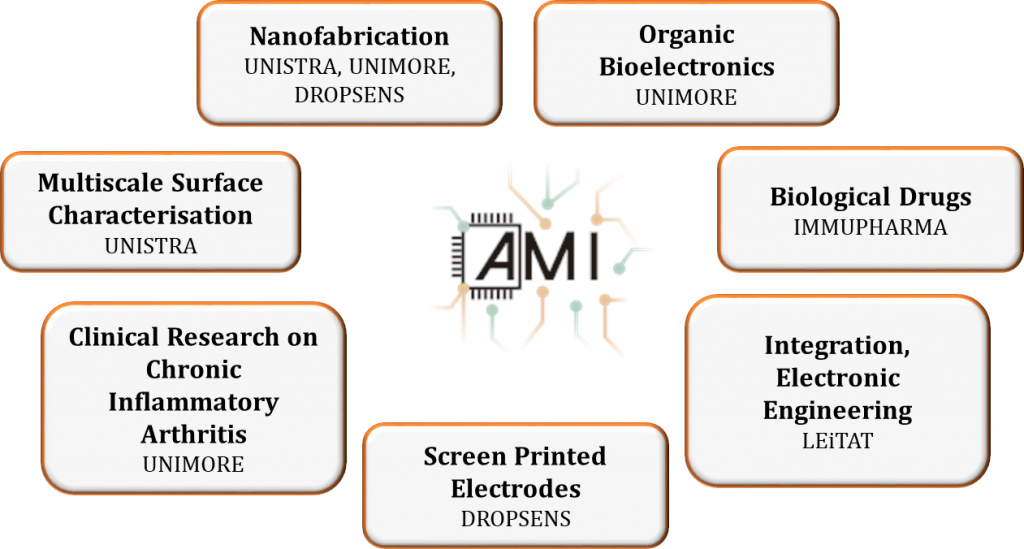Biological drugs, largely based on antibodies of specific pathological biomarkers, are at the forefront in the therapy of a large number of inflammatory diseases nowadays. A substantial population of patients, though, experience in time a loss of response to the treatment. A cause may stem from the patient’s immune system that produces antidrug-antibodies (ADAs) that, by binding the biological drug, decrease or even annihilate its efficacy. ADAs diagnostics, together with the dosing of circulating drug, would be therefore important in view of an effective administration of biological drugs. ADAs monitoring at Point-of-Care (PoC) is hampered by high costs and long timing for analysis.
The vision of AMI is a nanoscale label-free platform for the assessment of the immune reaction against biologicals targeted at inflammatory pathologies. The AMI platform is based on arrays of label-free electrolyte-gated organic field effect transistors with multiple gates functionalised either with the target biomarker for specific ADAs recognition, and with ADAs for dosing the circulating drug in patient fluids. The array as well as the integrated microfluidics is driven through a home-built multiplexed controller by means of a user-friendly interface, in order to enable the non-specialist to operate the platform. The platform will be demonstrated for two relevant end-user cases: a rheumatology division in a hospital, treating Rheumatoid Arthritis (RA), and a company developing drugs against Systemic Lupus Erythematosus (SLE). Thus, AMI aims to progress from the mere proof-of-concept to an application-relevant demonstration.
AMI integrates teams with multidisciplinary competences both from academic and industrial research, clinicians, and companies to span the whole value chain, in order to accelerate the transfer of the generated knowledge to market.


